Rabea and Steve’s rental unit
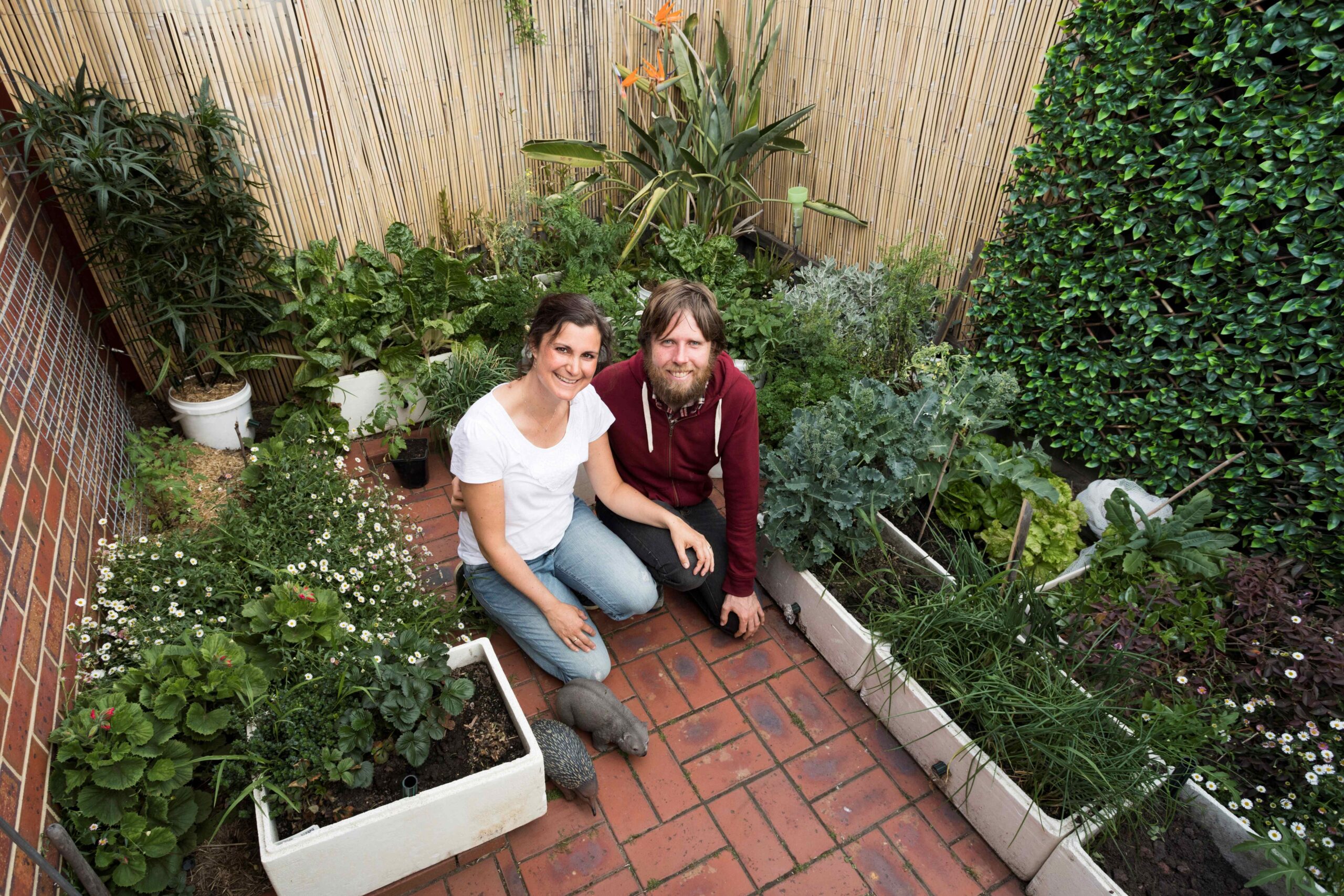
We grew a little bit of food before on a small balcony in Germany, but when we moved to a larger rental property in Altona we thought of expanding our garden but didn’t really know how and where to start and what to grow. We joined My Smart Garden in January 2018 after seeing a poster in the library. The winter gardening event was so helpful and encouraging that we started pretty much on the day of the workshop!
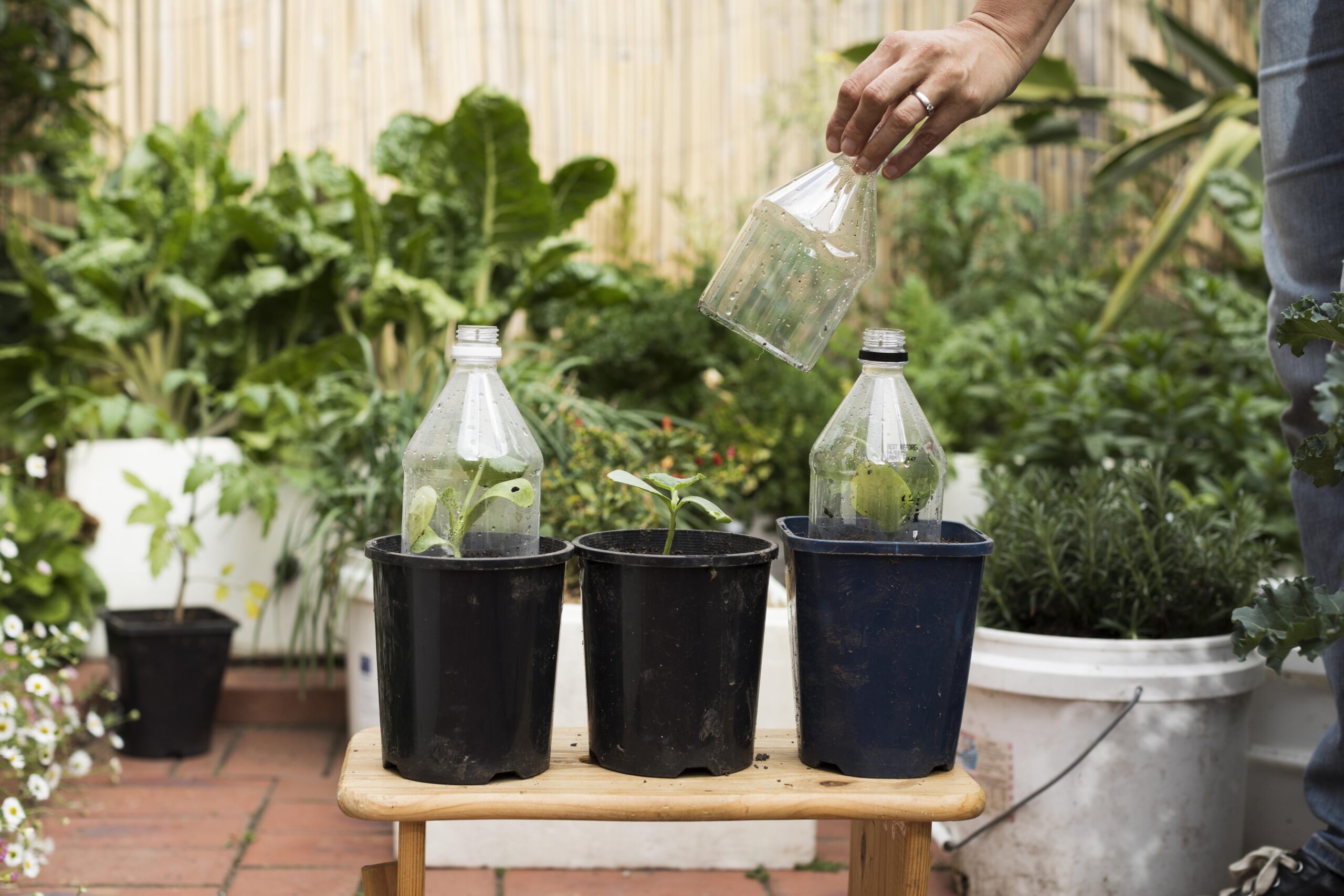
The workshops cover a lot of ground in a short time, and deal with common practical constraints, like growing in small spaces and preserving with kitchen equipment you already own. Rather than searching the internet and hoping for the best, we like to learn by talking to the presenter and other participants – meeting people who are actually doing it. They are well structured and you walk away thinking “I can do this. It’s not too difficult”. The tips in the newsletters are really useful too, for example we learned how to make a waterer for seeds from a plastic bottle and to put tomato seeds in early so they were germinating in September. It gives us confidence to know that we can ask for advice and because the first year was a success we felt encouraged to do more.
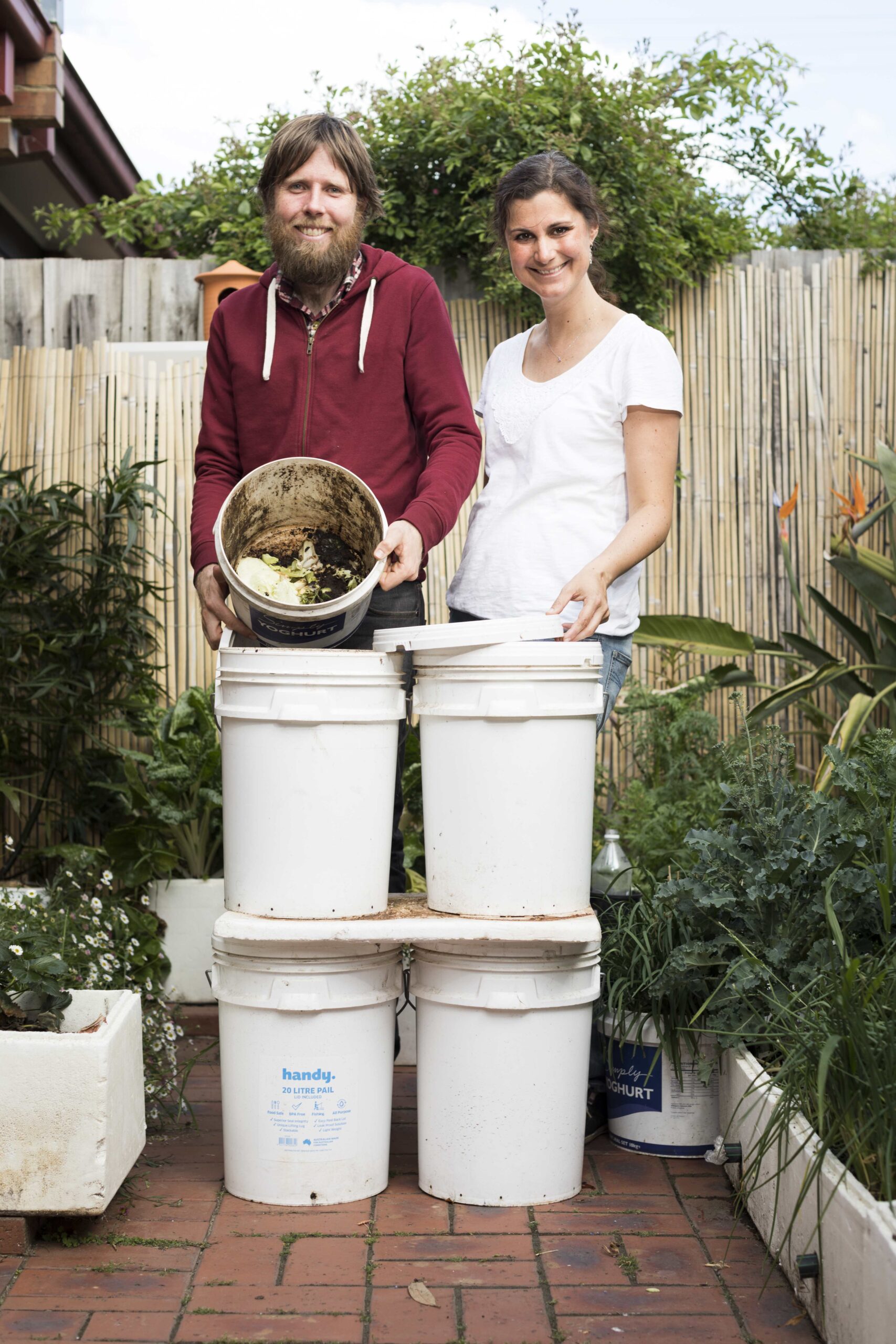
Our last rental had a small courtyard with plastic grass. The garden needed to be in pots, but they dry out quickly in summer, so we used waste buckets from a local Indian restaurant and foam broccoli boxes to make portable self-watering pots that are like wicking beds, only smaller.
We used to put so much food waste in the bin and the workshops got us into composting when we realised that we could do something on a small scale. We made our own portable system very cheaply and now we compost about 8L of food scraps a week. Growing food is a huge motivation to compost. When you put it into the garden you realise how much better the plants do and how much better the produce tastes. Now we see waste materials as resources and if we ever get a larger area we’ll collect lawn clippings from neighbours and coffee grounds from cafes.
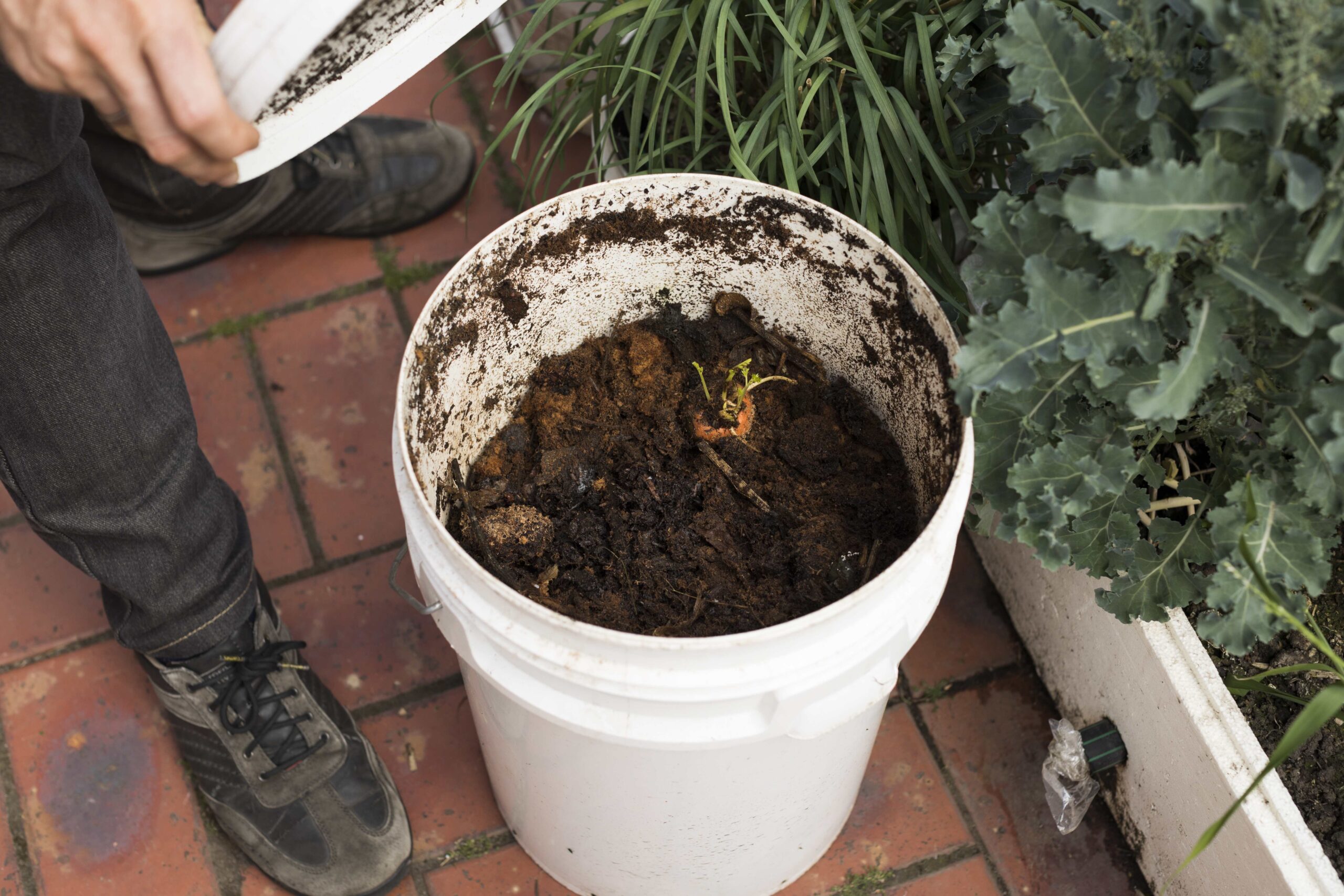
We mostly used free recycled materials so we only spent about $150 setting up the garden. We don’t have many ongoing costs because we make our own potting mix and compost, and save our own seeds. It costs us less than $100 a year to keep it going, and we estimate that the garden saves us around $1000 a year, especially because we started with the things that cost a lot, like herbs. We don’t need to buy greens like lettuce and silverbeet anymore because we just pick them out of the garden. We worked out we were spending about $500 a year on tea – and now we don’t spend anything like that! We don’t bother with herbs from the supermarket anymore, because you use a tiny bit and then it goes off in the fridge. By growing herbs ourselves we can pick exactly what we need rather than wasting it.
It’s also changed how we see the food that we buy. You don’t see a $2 head of broccoli and just throw it into your basket. Now we see how long it takes to grow something we have a much greater appreciation for it, and when it gets old we’ll make soup instead of throwing it out. When we go grocery shopping we think about how we’re going to use the food – we want to buy enough, but also not too much.
Last year we made some records of what we harvested and we’ve managed to grow 15-20% of our fresh produce, with about 10 square meters of garden and a bit of foraging. We use nettles from our family’s farm, we get apricots from our friend, and we harvest olives and cherry plums from street trees. It’s wonderful – it’s like having your own supermarket, and organic too.
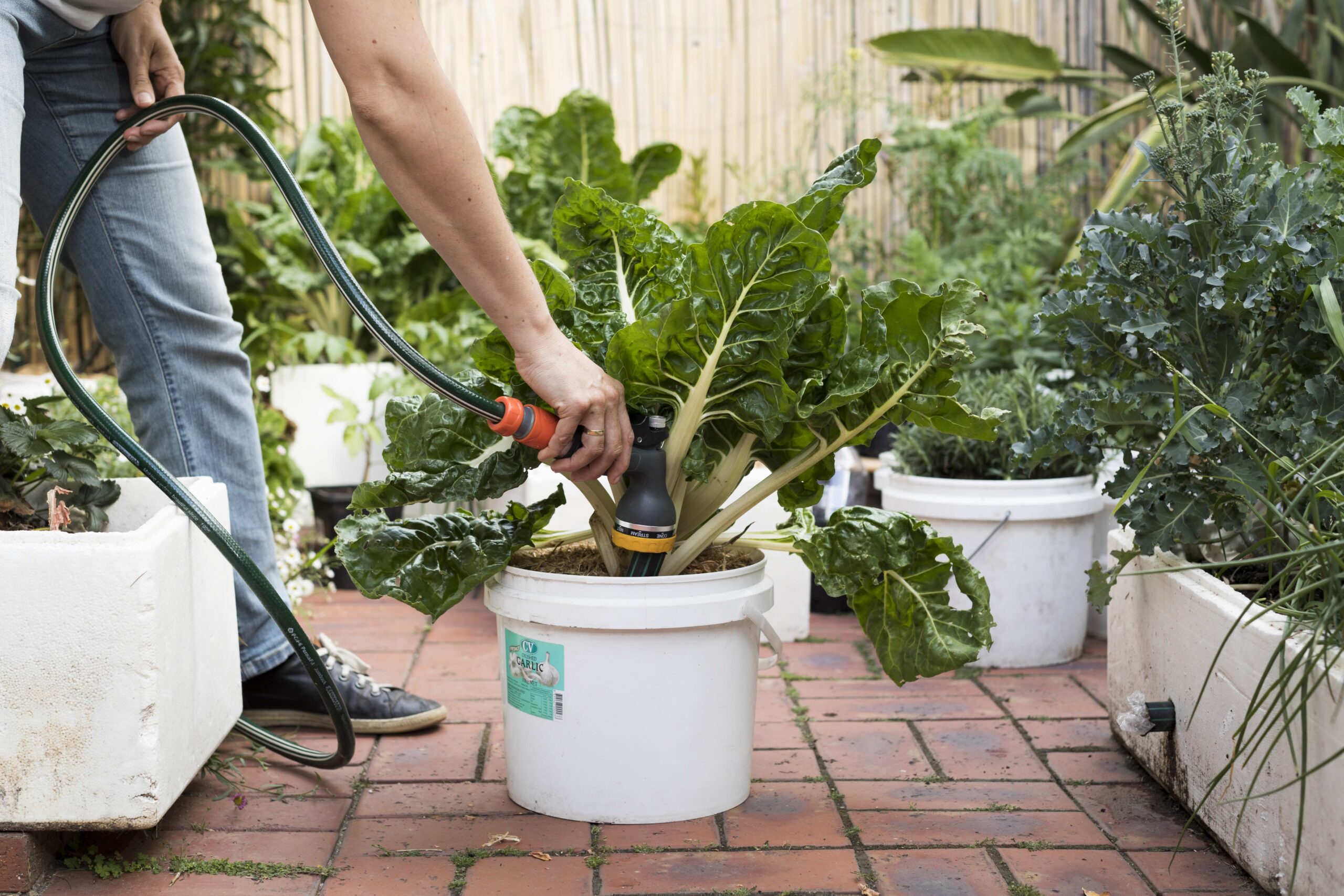
Food facilitates community. Gardening has brought us in closer contact with neighbours – one of them leaves us lemons in the mailbox and we give her spring onions. We’d love to have a community garden plot to grow crops that take more space, like pumpkins, and meet more neighbours. Once you’ve experienced growing food you never see lawns the same. Far enough if it’s a place to run around, but all that extra lawn does is collect dog poo and there’s no biodiversity.
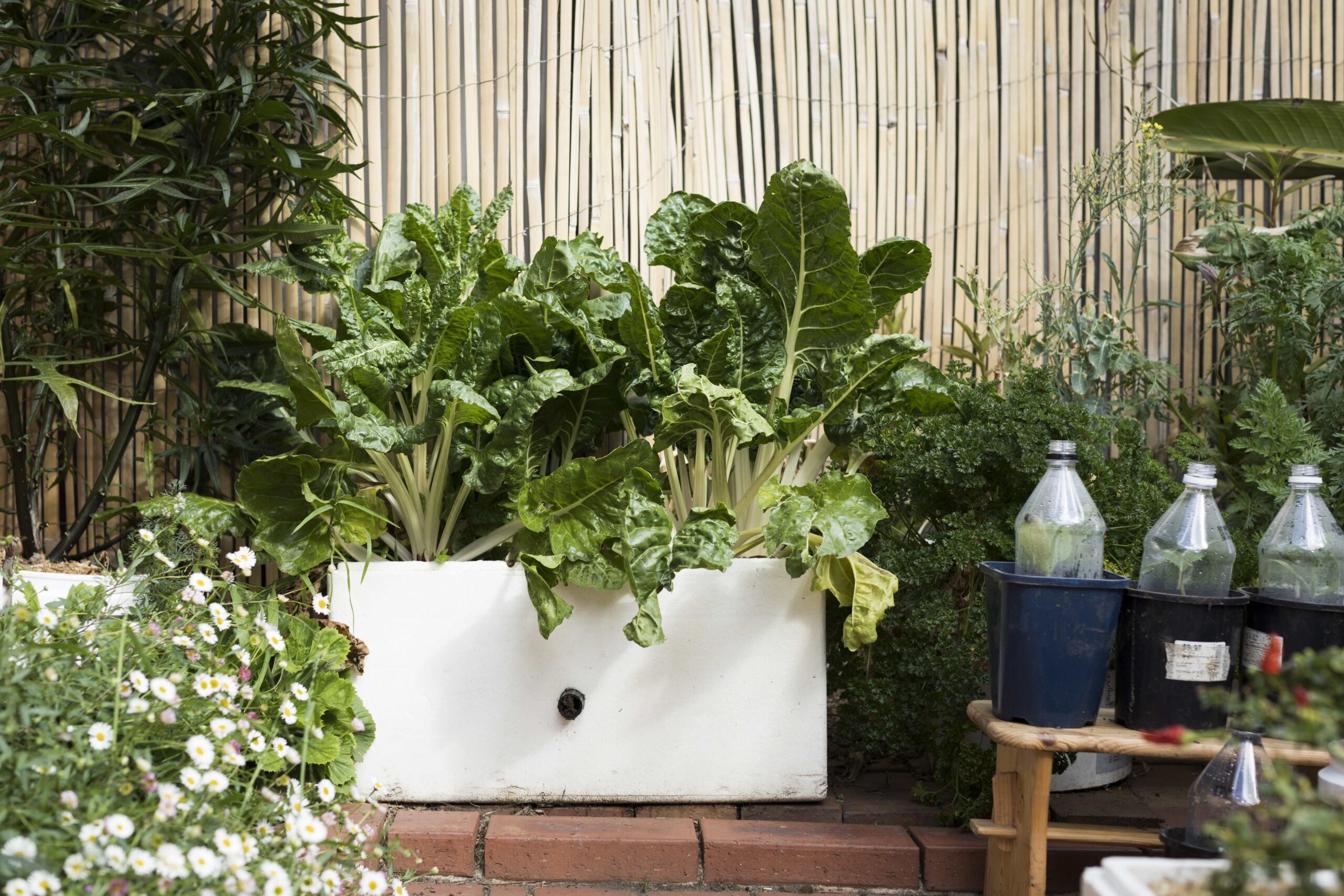
Growing food is something that will become more necessary in the future with climate change, but it’s also a really enjoyable hobby now. We find it very relaxing to be in the garden. We notice the weather changing and get to taste the food we’ve grown. It may sound a bit cheesy but it fills us with joy and peace whenever we work in the garden or even just look at it. As a renter you sometimes have these barren, empty paved areas but since we’ve created this green oasis, we’ll look out the window and think – gee that looks nice! It’s a real source of pride. When we moved the removalists said “are you guys moving a farm!?”
Now we’re learning to do natural pest control by using companion planting and encouraging biodiversity. This summer we’d like to convert our nature strip to food plants, and use greywater from our washing machine in the garden.



